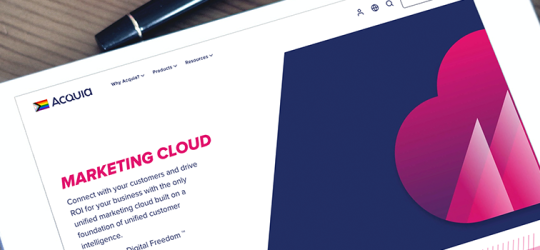Drupal, and How to Get the Best Out of Your Customer Experience Platform (CXP).

There are many different Customer Experience Platforms, or CXPs, available, but not all of them are created equal. And if your website is built using Drupal, you will find the best CXPs make interfacing with your website very easy.
Using a CXP simplifies the integrations between your brand content and the many different communication channels you might use. It makes it easier to reach your user base and reach them on the channel they prefer. Whatever your CXP, it needs to have a strong API (application programming interface) that allows a bi-directional flow of information. Meaning, your CXP should be able to easily consume information from other sources as well as deliver information to other sources.
Your website is a key component in how your brand is perceived and is potentially the number one source for customer information. To maintain a close connection with your users, it is equally important for your website to allow for an easy, bi-directional, flow of information. Drupal was built with this idea in mind and makes it easy to use a 3rd party API to consume and deliver information.
Drupal can use RESTful, or SOAP-based APIs to perform tasks such as subscribing to a newsletter, creating a campaign to send out the most recent blog post, or pushing new content out to social media channels. This is done through custom modules that enable the development of classes and leverage pre-defined classes and services to make the process simple and easy. There are several tutorials online that demonstrate how to create a custom module to consume information from an API, but the basic steps are:
- Setup your custom modules
- Create your custom classes to interface with the API
- Setup a service that uses methods to perform the various API tasks
- Use those services with Drupal’s publication hooks to trigger events and consume or deliver information when needed.
You can think of an API as the language two applications use to speak to each other. The more "words" the API can understand, the more it can accomplish. Therefore, it is important to make sure you are using a CXP that has a highly defined API.
Drupal can also be configured to respond to a technology called webhooks. While REST and SOAP calls are executed based on an event happening on your website, such as clicking a button, or scheduling a task to run, webhooks are executed by events that take place on the CXP and instruct the website to perform an action. An example of this is something as simple as a user unsubscribing to a newsletter. This is normally a function managed by the CXP and the webhook allows that information to trickle down to the user’s website account in real time. This is also an easy integration point for Drupal and can be accomplished once again using custom modules. Since Drupal is built on APIs, exposing an API endpoint to process incoming information is very simple. An API endpoint is simply a website path or URL that is designated as a listening point for your website. Drupal simply waits for a connection, verifies the source, and then processes the information received.
On Closer Inspection
Tactis has researched two CXPs and their APIs.
The first, Acquia's Marketing Cloud, touts that they are the world’s only open marketing cloud. Because of the open nature of each product in their cloud, strong APIs are going to be a requirement to ensure that each component can both properly share and consume data. Acquia’s Campaign Studio is built on the open source platform Mautic which has a very robust API.
The second of these, Iterable, is a cross-channel marketing platform that powers unified customer experiences and empowers you to create, optimize and measure every interaction across the entire customer journey. The idea is to learn how your customers communicate and which channels they prefer to use so that you can maximize user engagement with your brand. The list of communication channels is long and includes various social media platforms, e-mail, and SMS (text messages) to name just a few.
Both Acquia and Iterable have strong scalable APIs and are solid choice to engage customers and increase brand loyalty.